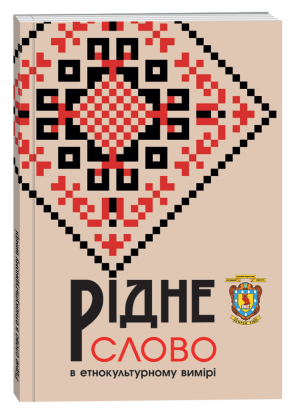INDO-EUROPEAN ETHYMOLOGY OF THE TITLE OF OBJECTIVE BREAST YEARS IN THE LIGHT OF ETHNOLINGISTICS AND SYSTEMAL ANALYSIS
DOI:
https://doi.org/10.24919/2411-4758.2018.140887Keywords:
the ethnolinguistic approach; the system of word formation; the method of system analysis; the Indo-European language; “Pysanka”; “Krashanka”; “Halunka”.Abstract
The article covers the problems of expanding the scientifi c instruments of linguistics on the basis of the conceptual foundations of comparative historical linguistics on the systematic creation of words from the vital needs of the individual in the specific conditions of the places of residence and human activity. The possibilities of modeling of words’ creation systems, the origin of which has no convincing interpretation, are substantiated. The author’s method of developing the structure of the se systems in the form of logical triangles or the equations “Personality x Nature and / or Activity x Language” and their synergistic fi lling with information from palaeopsychology, ancient history of Ukraine, ethno linguistics is offered. At the same time, the content of the element “Language” should disclose the linguistic features of the word being studied, the hypothesis concerning the language of its creation and the factors of its inheritance by the people of Ukraine. The scientifi c novelty is the application of this technique to reveal the origin of the names of Easter eggs “Pysanka”, “Krashanka”, “Halunka“. Thanks to the system analysis, the signs of the creation of these appeals in the Neolithic and Trypillian civilizations were revealed from the spiritual needs of the proto-Ukrainian ethnos after its transition from the consumption of natural resources to productive labor on the cultivation of land and breeding of cattle. The association of the name “Krashanka” with the Indo-European lexical composite “kriyā х asán х aṇḍa х kа” in the sense of “sacrifi cial, painted blood of the egg-sun” is proved with the spiritual needs and occupations of the ancient livestock of the Carpathian region of the Chernivtsi region. At the same time, the word-formation of the exclusively Ukrainian-language name “Halunka” correlates with Indo-European words “halā х unna х ka” in the meaning of “earth, water x wet egg-sun” and using prehistoric farmers in the Easter rites in the territories of Bessarabia and Podillia. The information obtained is useful in studies on comparative historical linguistics and ancient history of Ukraine.
References
Білодід, І.К.(Ред.) (1973) Словник української мови: в 11 томах. Том 4. Київ : Наукова думка.
Білодід, І.К.(Ред.) (1975) Словник української мови: в 11 томах. Том 6. Київ : Наукова думка.
Булаховський, Л.А. (1977) Питання походження української мови : Вибрані праці в п’яти томах. Т. 2. Київ : Наукова думка.
Грінченко, Б. (1958) Словарь української мови. Том 1. Київ : Вид-во Академії наук Української РСР.
Грінченко, Б. (1958) Словарь української мови: в 4-х т. Том 2. Київ : Вид-во Академії наук Української РСР.
Жайворонок, В. В. (2006) Знаки української етнокультури : Словник-довідник. Київ: Довіра.
Караванський, С.Й. (2014). Практичний словник синонімів української мови. Львів: БаК.
Карачко, С.І. Традиція Великодніх свят на Буковині. Взято з http://maidan. org.ua/static/mai/1303466995.html.
Кочергина, В. А. (2005) Санскритско-русский словарь : Около 30000 слов / В.И. Кальянов (ред.). Москва : Академический проект : Альма Матер.
Мельничук, О.С., Болдирєв, Р.В., Коломієць В.Т., Скляренко В.Г. (ред.) (2003) Етимологічний словник української мови : у 7 т. Т. 4. Київ : Наукова думка.
Осецький, Й.П. (2013) Етимологія понять кольорів «чорний» і «червоний» у дзеркалі санскриту. Рідне слово в етнокультурному вимірі, 213-222.
Осецький, Й.П. (2015). Вчення О.О. Потебні і релікти індоєвропейської мисливської лексики в апелятивах і онімах української мови: дані системного аналізу. Рідне слово в етнокультурному вимірі, 192-199.
Поливаний понеділок. Взято з https://uk. wikipedia org/wiki/ Поливаний_ понеділок.
Потебня, А.А. Мысль и язык. Взято з http: // ww.classes.ru / grammar / 147. Potebnya.
Семчинський, С.В. (1988) Загальне мовознавство. Київ : Вища школа. Головне вид-во.
Словник синонімів української мови. Взято з http://ycilka.net/synonim. php?id=18;
Український мовно-інформаційний фонд НАН України. Синонімія. Взято з http://lcorp.ulif.org.ua/dictua/dictua.aspx.
Шкуратов, В.А. (1997) Историческая психология. Москва : Смысл.

